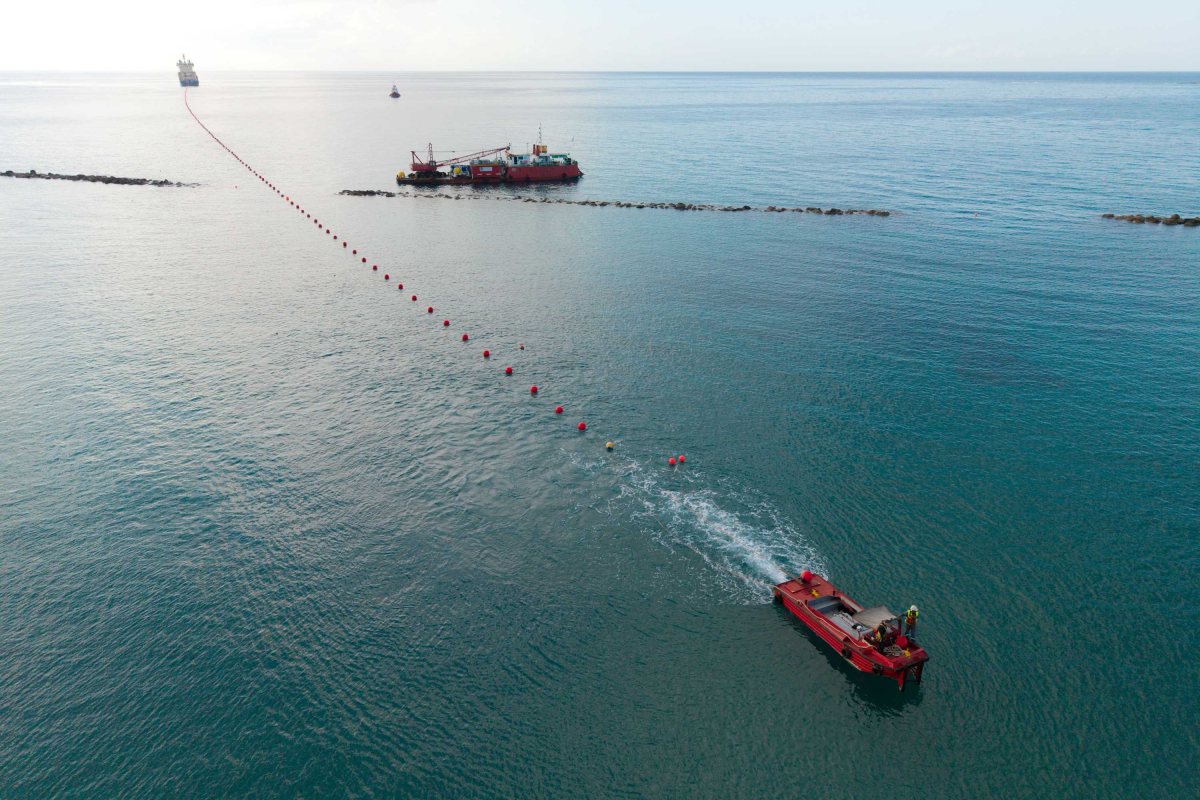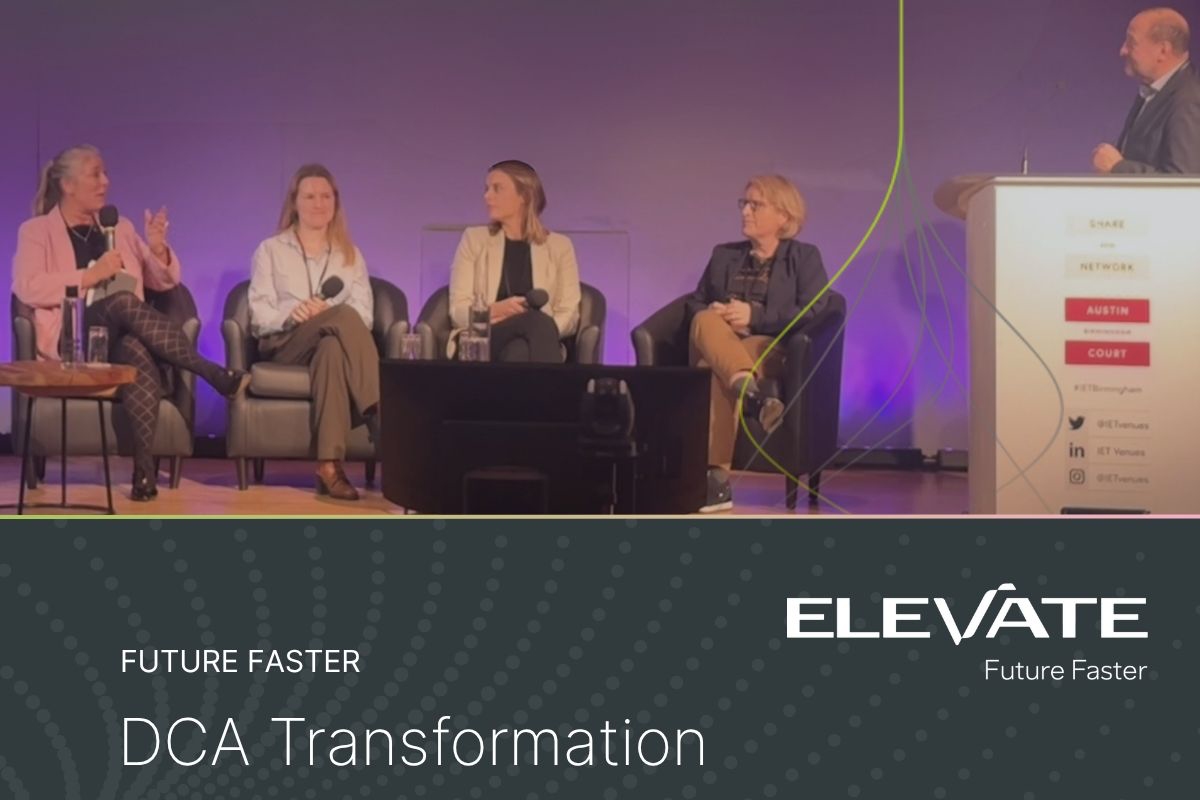News
Data Centre Infrastructure News & Trends
Enterprise Network Infrastructure: Design, Performance & Security
News
Arista unveils 800G R4 series networking portfolio
Arista Networks, a provider of cloud and AI networking systems, has introduced a new generation of R4 Series networking platforms designed for artificial intelligence, large-scale data centre environments, and routed backbone deployment.
The new systems are intended to support high-performance compute clusters, low-latency operation, and large routing backbones.
According to Arista, the portfolio is designed to provide high port density and support for 800-gigabit ethernet networks, with integrated security features for encrypted traffic.
Seamus Crehan, President of Crehan Research, says, “The 800GbE market is growing explosively with port shipments more than tripling sequentially in Q2 '25, and Arista led in branded market share for both 800GbE as well as overall data centre ethernet switching.
"These new 800GbE products from Arista are well-timed to capitalise on this segment’s projected 90% five-year average annual growth rate driven by AI, storage, and general compute workloads.”
Arista states that the new systems are designed to reduce operating costs and energy consumption in AI and data centre environments, while supporting routing technologies such as EVPN, VXLAN, MPLS, and SR/SRv6.
The company also highlights engineering for predictable latency and packet-handling performance.
Focus on high-density 800G networking for AI
Arista says the platforms are aimed at workloads including AI training, inference, data centre interconnect, and large-scale routing. The new generation supports a range of 800-gigabit configurations, with capacity options designed for large-enterprise, cloud, and service provider networks.
Tim Smith, Senior Vice President of Technical Infrastructure Engineering and Operations at Magnite, comments, “When Magnite needed to build our next-generation data centre solution for AI and other advanced computing needs, Arista was the clear choice given their high quality offering.
"We've deployed a dense 800G spine using the modular Arista platform with both AI-optimised and high-scale multiservice routing linecards, providing an ideal foundation for the future.”
Arista notes that the systems include options for secure traffic handling with wirespeed encryption across all ports, including MACsec, IPsec, and VXLANsec.
The highest-capacity chassis in the range supports hundreds of 800-gigabit ethernet ports in one system. Arista also introduces its HyperPort interface, which the company says can simplify scale-across network designs and reduce AI workload completion times compared with traditional multi-link configurations.
Supporting spine and leaf deployments
Arista has also expanded its fixed-form systems designed for use as either data centre spines or leaf switches. According to the company, the systems offer flexible port combinations for 800-gigabit and 100-gigabit ethernet environments.
Leaf systems in the portfolio are positioned for direct server connectivity and mixed-workload data centres. These switches include copper and fibre options, uplink ports, and hardware-based encryption support.
Arista says its larger modular systems and several associated linecards are available now, alongside new fixed-format switches. Additional platforms and configurations are scheduled for release in early 2026.
For more from Arista, click here.
Joe Peck - 30 October 2025
Data Centre Infrastructure News & Trends
Enterprise Network Infrastructure: Design, Performance & Security
News
Sparkle's BlueMed submarine cable lands in Cyprus
Sparkle, the first international service provider in Italy, and Cyta, a provider of integrated electronic communications in Cyprus, have announced the arrival of the BlueMed submarine cable at Cyta’s Yeroskipos landing station in Cyprus.
BlueMed is Sparkle's new cable connecting Italy with several countries bordering the Mediterranean and up to Jordan. It's part of the Blue & Raman Submarine Cable Systems - built in partnership with Google and other operators - that stretch further in the Middle East up to Mumbai, India.
With four fibre pairs and an initial design capacity of more than 25 Tbps per pair, the system delivers high-speed, low-latency, and scalable connectivity across Europe, the Middle East, and Africa.
A new PoP in Cyprus
With the branch to Yeroskipos station, Sparkle secures a key point of presence (PoP) in Cyprus, while Cyta gains access to the BlueMed submarine cable system, enhancing connectivity between Cyprus, Greece, and other Mediterranean countries.
This initiative aims to enable Cyta to better meet the growing demand for advanced internet services and digital content in the country, while strengthening Cyprus’ role as a strategic digital hub - providing direct connectivity to Greece, to Western and Central Europe via Genoa and Marseille, and to the Levant through other neighbouring eastern Mediterranean countries.
Enrico Bagnasco, CEO of Sparkle, comments, “This is a new, important stage for BlueMed, a project that embodies our commitment to innovation and collaboration, linking Europe with Africa and the Middle East through state-of-the-art infrastructure.
“Today, we are also particularly glad to celebrate this milestone with our long-standing partner Cyta, confirming our shared commitment to strengthening connectivity in the Mediterranean basin.”
George Malikides, Chief Technology Officer at Cyta, adds, “The connection of Cyta to BlueMed will further enhance the Cyprus digital ecosystem and reinforce the island’s position as a key digital hub in the Eastern Mediterranean."
George Metzakis, Chief Commercial Officer at Cyta, concurs, stating, “The arrival of BlueMed in Cyprus marks a pivotal step forward in our ongoing mission to strengthen the island’s international connectivity.”
BlueMed has received funding from the European Commission under the Connecting Europe Facility (CEF) programme, highlighting its strategic relevance for improving digital resilience and connectivity across Europe and beyond.
Joe Peck - 30 October 2025
Data Centre Infrastructure News & Trends
Innovations in Data Center Power and Cooling Solutions
Products
Wolong introduces efficient motors for DC cooling applications
Wolong Electric America, a developer of industrial motor and drive technology, has introduced its Permanent Magnet Direct Drive (PMDD) motors, highlighting their ability to improve energy efficiency and reduce heat generation in high-demand environments such as data centres.
Designed to operate without belts or sheaves, PMDD motors use a direct drive system that reduces mechanical complexity and common failure points, improving reliability and minimising maintenance requirements.
The approach should also reduce mechanical stress and radial load on bearings, contributing to a longer service life.
Lower heat output and energy use in data centres
At the core of each motor is a rare earth magnet design that delivers stronger magnetic fields in a compact form factor.
This aims to enable higher efficiency and cooler operation compared with traditional induction motors, which would be a key advantage in temperature-sensitive environments such as data centres, where controlling internal heat and power consumption are constant priorities.
The motors are operated via a variable frequency drive (VFD), enabling precise speed control, smooth acceleration and deceleration, and reduced electrical strain on supporting systems.
A 4:1 turndown ratio allows the motors to maintain torque and efficiency - including at low speeds - supporting variable airflow demands within cooling systems.
Wolong Electric says its PMDD motors can be integrated directly into fan assemblies, reducing overall system losses and eliminating inrush current at startup.
With reported efficiency improvements of around 20% over conventional induction motors, the design should contribute to measurable reductions in both energy use and waste heat.
Flexible configurations for critical environments
Wolong Electric says the PMDD motors can be tailored to specific applications, including data centre cooling systems, refineries, and OEM equipment such as heat exchangers.
The motors are designed to operate at lower temperatures and with reduced maintenance demands, supporting long-term reliability and stable thermal management across facility operations.
The company’s design approach hopes to enable easy integration with OEM and packaged system configurations, helping operators meet efficiency goals while aligning with evolving energy standards.
Joe Peck - 29 October 2025
Data Centres
Events
News
Sponsored
Datacentre Innovation Series 2025 announced
In an age where digital transformation is pivotal for every industry, TraiCon Events says it is proud to announce the Datacentre Innovation Series 2025, taking place on 10 December 2025 at the Park Hotel in Hyderabad, India.
This premier event will focus on the future of data centres, exploring new technologies, sustainability practices, and cutting-edge innovations that are reshaping the industry.
Transforming India’s data centre landscape
India’s data centre industry is on the brink of a major revolution, driven by cloud adoption, data sovereignty, AI, and the growing need for digital infrastructure.
With a rapidly expanding digital economy and increased reliance on cloud computing, India is investing heavily in modernising and expanding its data centre ecosystem.
The focus is on scalability, resilience, sustainability, and ensuring that data protection and privacy are at the forefront.
The Datacentre Innovation Series 2025 will delve into the most pressing topics such as edge computing, data centre automation, 5G infrastructure, green data centers, AI-driven operations, and cybersecurity.
Who should attend?
This high-level strategic forum will bring together more than 250 senior-level professionals, government officials, industry experts, technology innovators, and decision-makers to discuss the future of India’s data infrastructure and the rapidly evolving landscape of digital transformation.
Attendees will include:
• Data centre operators & providers• Cloud service providers (CSPs)• Telecom operators• Government & regulatory officials• Technology innovators & solution providers• Data security & privacy experts• Sustainability leaders• Data infrastructure investors• Designers & engineers of data centres• Academia & research institutions• Telecom & IT analysts
Why this series and why now?
India’s data centre industry is witnessing unprecedented growth, with an increasing focus on sustainability, cloud-first strategies, and the future of edge computing.
As the nation drives towards digital India initiatives and addresses data sovereignty concerns, it’s essential to stay ahead of the curve with the latest technologies and best practices.
With the rise of 5G, AI, and IoT, the demand for robust, scalable, and secure data centres is higher than ever before.
The Datacentre Innovation Series 2025 will equip professionals with the knowledge and strategies required to tackle the evolving challenges and ensure that India’s data centre ecosystem is ready for the demands of the future.
Joe Peck - 28 October 2025
Data Centre Infrastructure News & Trends
Enterprise Network Infrastructure: Design, Performance & Security
News
GNM-IX launches new PoP in Bucharest
GNM-IX, a Dutch internet exchange and backbone operator, has announced the launch of a new point of presence (PoP) in Bucharest, Romania, located in NXDATA-1, one of the country’s major carrier-neutral data centres and a digital gateway to Southeast Europe.
This marks GNM’s first presence in Romania, expanding the company’s distributed interconnection platform into another region of Europe.
The new Bucharest site provides access to GNM’s core connectivity services - internet exchange (GNM-IX), VLAN-based interconnections, and global IP Transit - enabling Romanian operators and content networks to exchange traffic locally and optimise international routes through GNM’s multi-terabit platform.
For existing GNM members, the new PoP should strengthen connectivity across Southeast Europe, creating additional redundancy and more efficient routing options towards the Balkans, Central Europe, and beyond.
Alex Surkoff, Business Development Director at GNM, comments, “Our goal is to make high-performance connectivity available wherever networks grow.
“Expanding to Bucharest enhances our distributed architecture and gives both local and international operators new ways to interconnect - staying local in traffic exchange while remaining part of the global internet fabric.”
GNM-IX now has more than 10 Tbps of aggregated traffic and 650+ connected networks.
For more from GNM, click here.
Joe Peck - 28 October 2025
Data Centre Business News and Industry Trends
Insights into Data Centre Investment & Market Growth
News
Stellanor acquires eight DCs from Redcentric
Data centre operator Stellanor Datacenters, backed by a fund managed by global investment manager DWS, has announced the acquisition of eight strategic data centre sites from Redcentric, currently serving approximately 450 clients.
The move marks a milestone in Stellanor’s broader strategy to be a major platform of regional data centres serving national and international enterprises as well as service providers with a need for wholesale and AI inference data centre capacity.
Stellanor says it is creating a new generation of regional data centres, designed for proximity, performance, sustainability, and accessibility.
As digital services become increasingly critical to business operations, the demand for secure, scalable, and locally hosted infrastructure is accelerating. Enterprise adoption of generative AI and real-time analytics will significantly accelerate this trend, particularly at the edge.
Stellanor believes its growing network of urban and near-urban facilities are well positioned to meet the requirements of enterprise and AI-driven workloads of customers across the country.
Steve Scott, CEO at Stellanor, argues, “We’re building infrastructure for the future, where data is generated, processed, and protected at the edge. Our goal is to set a new benchmark for high-performance, community-conscious data centres in Northern Europe.
"Our focus is always on our customers, who will receive the highest standard of service. We look forward to growing our business alongside them and serving their future colocation needs.”
Strategic UK expansion
The newly acquired sites are strategically located in London, Reading, Cambridge, Woking, Gatwick, Byfleet, and West Yorkshire.
The sites are seen as attractive given their high-density colocation capabilities, security standards, and sustainable operations powered by 100% renewable energy.
Aparna Narain, Partner at DWS, comments, “The acquisition of RDC by Stellanor represents a transformative step in expanding our UK footprint to ten, high-quality, strategically located assets with 36MW of secured grid capacity and a blue-chip customer base.
“We see significant long-term value in building resilient, scalable, and sustainable infrastructure that supports the UK’s digital economy.”
With this acquisition, Stellanor will operate ten data centres across the UK, with plans for continued expansion across the UK and Nordics, focusing on service quality.
Joe Peck - 27 October 2025
Data Centre Infrastructure News & Trends
Innovations in Data Center Power and Cooling Solutions
News
Aligned, Calibrant to deploy on-site battery storage
Aligned Data Centers (Aligned), a technology infrastructure company, and Calibrant Energy (Calibrant), a US provider of on-site energy systems, have announced a new energy solution to address an urgent constraint to the data centre industry: access to grid power.
The announcement comes as the rapid growth of AI and advanced computing fuels unprecedented power demand, accelerating the need to increase load service and ensure reliable access to grid power.
Under the agreement, Calibrant will deliver a 31MW / 62MWh battery energy storage system (BESS) at Aligned’s data centre campus in the Pacific Northwest.
The on-site system, planned to be operational in 2026, will enable the facility to come online and scale operations years earlier than would be possible with traditional utility upgrades.
Calibrant and Aligned have been partnering with a regional utility in the Pacific Northwest since the start of negotiations to explore flexibility as a means to increase and accelerate interconnection.
Phil Martin, CEO at Calibrant, says, “This project flips the script on how data centres access power.
“Rather than the false choice between waiting years for system upgrades or having to go off grid entirely, we're working with leading data centre providers like Aligned to use distributed energy solutions to facilitate and accelerate grid interconnection.
“This innovative model allows large power users to take control of their energy future while being stewards of their community - ensuring growth objectives are met in a manner that supports grid reliability, has minimal environmental impact, and doesn't burden others with the costs."
A US first
This will be the first time in the US that a battery system is purpose-built to accelerate interconnection and bring a large-scale data centre online.
Developed using Calibrant’s 'Path to Power' solution - a replicable, scalable approach that leverages on-site energy to overcome siting and capacity bottlenecks - the system functions as a grid-responsive asset, designed to discharge during peak demand, bolster grid reliability, and ensure uninterrupted service.
Calibrant and Aligned say they prioritised safety and the use of domestically manufactured components for this project, sourcing from suppliers that maintain US-based manufacturing and supply chains.
The battery system meets international safety standards by incorporating multiple layers of protection, including safer battery chemistry, built-in fire mitigation measures, and remote 24/7 monitoring.
Key equipment, including transformers, switchgear, and batteries, were all manufactured and/or assembled in the United States.
Andrew Schaap, CEO at Aligned, comments, “This strategic project redefines how we grow in power-constrained markets.
"With this BESS, we’re converting our load from a potential grid liability into a dynamic grid asset, providing the regional utility with the tools needed to accelerate our ramp, and we’re doing it responsibly, without impacting ratepayers.
“We're proud to partner with Calibrant on a new market-defining initiative, directly addressing the industry's critical constraint of access to grid power. Their experience in serving large power users and critical facilities was instrumental in our ability to move quickly and efficiently.”
Calibrant and Aligned confirmed they are considering similar projects in other markets, signalling a repeatable approach for data centre operators facing interconnection challenges.
For more from Aligned, click here.
Joe Peck - 27 October 2025
Data Centre Build News & Insights
News
Sustainable Infrastructure: Building Resilient, Low-Carbon Projects
nLighten reports first ICFEn scores for UK, Germany, Spain
nLighten, a European data centre operator, has announced the first Integrated Carbon-Free Energy (ICFEn) scores for its data centres in the United Kingdom, Germany, and Spain, something the company considers a significant step in how environmental performance is measured within the sector.
Developed in collaboration with the Fondazione Eni Enrico Mattei (FEEM), nLighten says the ICFEn framework introduces a more comprehensive approach to sustainability reporting by assessing hourly carbon-free energy matching, heat recovery, and contributions to grid stability.
Unlike traditional metrics that rely on annual averages or focus solely on energy consumption, the company notes that ICFEn provides real-time insights into how facilities contribute to decarbonisation through energy reuse and system integration.
A new framework for transparent environmental reporting
The ICFEn model builds upon the 24/7 Carbon-Free Energy concept by including three key elements: hourly renewable electricity matching, heat recovery, and grid stabilisation.
This combined methodology aligns with the EU Energy Efficiency Directive, as well as sustainability standards such as the Greenhouse Gas (GHG) Protocol and the Science Based Targets initiative.
Chad McCarthy, Chief Technology Officer at nLighten, comments, “Traditional sustainability metrics have focused on the data centre’s electrical energy profile, but ICFEn integrates the data centre into a community energy system, accounting for both consumption and contribution.
"By including heat recovery and real-time renewable energy matching, we’re offering customers and stakeholders unprecedented transparency about our environmental impact, hour by hour, not just as year-end averages.”
nLighten’s facilities in the UK, Germany, and Spain achieved good ICFEn scores through renewable power purchase agreements and heat recovery initiatives.
Its UK data centres recorded an ICFEn score of 94.61%, higher than the regional carbon-free energy grid average of 56.47%.
The company achieves hourly renewable energy matching by integrating renewable assets into its portfolio and aligning their production with operational demand in real time. This aims to ensure that data centres are powered by clean energy when it is actively being consumed.
Francesco Marasco, Vice President of Energy Operations and Sustainability at nLighten, adds, “We’re not just measuring renewable energy consumption, but quantifying environmental improvement through sustainable projects, for which we share the calculation method transparently.
"The ICFEn methodology allows us to demonstrate measurable, system-wide benefits that lower community emissions. We encourage other operators to adopt this framework, as raising awareness of data centres’ environmental contributions benefits the wider sector.”
Encouraging wider adoption
nLighten has made the ICFEn methodology publicly available under a Creative Commons licence to encourage industry-wide adoption.
The framework’s release coincides with updates to the GHG Protocol, which are expected to introduce hourly-based renewable energy reporting requirements.
The company plans to extend ICFEn reporting to all European sites and introduce third-party verification of hourly energy and heat recovery data as part of its next phase of implementation.
For more from nLighten, click here.
Joe Peck - 27 October 2025
Data Centre Build News & Insights
Data Centre Projects: Infrastructure Builds, Innovations & Updates
Events
Sponsored
Data Centre Congress Global returns in 2026
Data Centre Expo Global is set to return to Olympia London on 4–5 February 2026, bringing together global leaders and innovators from across the digital infrastructure ecosystem to explore the future of green data, intelligent investment, and resilient physical infrastructure.
Driving sustainable growth through innovation and investment
Under this year’s themes of green investment, digital innovation, and physical infrastructure, the programme will spotlight how operators are redefining the foundations of data centres.
Expect deep explorations of decarbonisation strategies, circular and modular design, grid integration, advanced cooling, power systems innovation, and sustainable site planning.
Sessions will also examine how digital innovation is reshaping infrastructure, from AI-driven operations, automation, and control systems to next-generation materials, software-defined infrastructure, and data centre architectures that flex with demand and resilience requirements.
Hyperscale, edge, and ensuring infrastructure resilience
On the day two track, speakers will explore how hyperscale and edge infrastructures must evolve to serve a distributed, latency-sensitive, resilient future.
Topics include data sovereignty, resilient connectivity, distributed compute, AI orchestration, fault tolerance, and hybrid edge-cloud architectures.
The focus will remain squarely on designing systems that sustain performance under evolving stressors and threats.
Hear from leading voices in digital infrastructure
Attendees will gain first-hand insight from distinguished industry leaders, including:
● Elena Rehman, EMEA Head for Data Center Land Development, Microsoft● Kenneth Dalton, Operations Director, Global Switch● Vladimir Prodanovic, Principal Product Manager, NVIDIA● Susanna Kass, Data Center Advisor (UNSDG-EP)● Wilfried Dudink, Senior Director, Strategy & Development, Digital Realty● Joe Hurman, Principal Consultant, STL Partners● Steve Hone, CEO and co-founder, DCA (Data Centre Alliance)● Venessa Moffat, Advisory Board Member, DCA
These experts will share case studies, forecasts, technical deep dives, and actionable guidance to help decision-makers across data centre and infrastructure industries.
A hub for cross-domain collaboration
Co-located with Cyber Security & Cloud Expo, AI & Big Data Expo, IoT Tech Expo, Digital Transformation Week, Cloud Transformation Conference, Edge Computing Expo and the Intelligent Automation Conference, the Expo will offer delegates exposure to the full spectrum of digital infrastructure trends and challenges.
This integrated environment aims to foster "serendipitous connections and cross-industry innovation."
Nearly 8,000 attendees, 150 exhibitors, and over 200 speakers are expected to convene in London to chart the course of next-generation infrastructure. To be a part of it, you can review the full agenda, explore the speaker list, or register for a free or 'Gold' pass by visiting the event's website.
Joe Peck - 24 October 2025
Data Centres
Events
Sponsored
Elevate sparks dialogue at DCA Transformation 2025
Elevate – Future Faster, the data centre brand from Excel Networking, was represented by Rebecca Nye at the DCA Data Centre Transformation 2025 event held at IET Birmingham this week.
Rebecca joined a distinguished panel to discuss the evolving demands of the data centre sector and the bold questions shaping its future.
The panel, hosted by Mark Acton (DCA), featured industry leaders including Jovita Januskeviciute (JLL), Anastasia Wills (NGED), and Dr Sharon Richardson (Hoare Lea). Together, they explored:
• The immediate and long-term future of data centres
• The impact of AI on power requirements and infrastructure planning
• How far ahead we can realistically predict the digital landscape
• The role of nuclear power and the need for greater education around the importance of the data centre industry
Rebecca highlighted Elevate’s strengths in supporting clients through stock availability, reduced lead times, and just-in-time delivery - all critical factors in helping customers meet project timelines and scale with confidence.
Rebecca comments, “Elevate is here to accelerate transformation, challenge convention, and support our customers in navigating the complexities of tomorrow’s data centre environment.
“We’re seeing a shift in expectations. It’s not just about capacity anymore; it’s about agility, speed, and foresight.
“Elevate is committed to helping our partners stay ahead of the curve. We’re not just imagining the future; we’re building it."
Elevate – Future Faster continues to lead the charge in delivering high-density fibre solutions, containment solutions, ducting, and intelligent power distribution, alongside strategic partnerships with global innovators such as nVent, Sunbird, Senko, Schleifenbauer, and more.
For more information about Elevate and its mission to bring the future faster, reach out to Rebecca directly on Linkedin, visit Elevate's website, or follow Elevate on LinkedIn.
For more from Elevate, click here.
Joe Peck - 24 October 2025

Head office & Accounts:
Suite 14, 6-8 Revenge Road, Lordswood
Kent ME5 8UD
T: +44 (0)1634 673163
F: +44 (0)1634 673173









